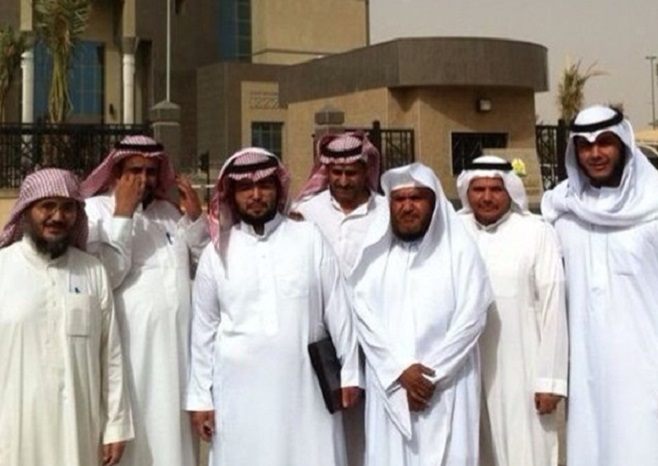On 29 May 2016 the Specialized Criminal Court (SCC), Saudi Arabia’s terrorism tribunal sentenced Abdulaziz al-Shubaily to eight years in prison. Charges against the human rights activist include “inciting disorder by calling for demonstrations,” “participating in the founding of an unlicensed organization” and committing the crime of “communicating with foreign bodies and providing them with reports that contain many mistakes about the Kingdom.” He is also forbidden from traveling abroad and writing on social media for the eight years following his prison term. Americans for Democracy & Human Rights in Bahrain (ADHRB) calls on Saudi Arabia to drop all charges against al-Shubaily.
Al-Shubaily is a co-founder of the Saudi Arabian Civil and Political Rights Association (ACPRA), a civil society organization that documents human rights violations committed by the Saudi Ministry of Interior (MoI) officials and calls for wide-ranging political reforms. ACPRA has accused the MoI of rampant human rights abuses, such as torture and political repression. In response, Saudi authorities have systematically targeted ACPRA members for their criticisms.
At this time, all of ACPRA founders are serving long-term prison sentences. In April 2016, the president and co-founder of ACPRA, Issa al-Hamid, was also sentenced to nine years in prison and a nine-year travel ban for similar charges. Prior to his sentencing, al-Shubaily was the only ACPRA member still at liberty.
“The conviction against Abdulaziz al-Shubaily’s is yet another instance of the Saudi government’s abuse of anti-terror and anti-cybercrime laws,” said ADHRB Executive Director Husain Abdulla. “This is yet another attempt by a GCC government to equate peaceful dissent with violent extremism and terrorism.”
The SCC has tried and sentenced multiple activists for their human rights work since March 2011. Exploiting the anti-terrorism law’s broad definition of “terrorist crime,” the Ministry of the Interior has applied wide-ranging powers of arrest and detention to criminalize political dissident. The SCC has used its expansive authority to invoke the death penalty, most notably in the case of Sheikh Nimr Baqir al-Nimr. A prominent leader of the peaceful opposition, al-Nimr was arrested in 2012 and was subjected to a series of due process violations over the course of his trial. In October 2014, the SCC convicted al-Nimr of terrorism and carried out his execution on 2 January 2016.
ADHRB calls on the Kingdom of Saudi Arabia to reverse this ruling against Abdulaziz al-Shubaily. We further call on the Saudi government to release all imprisoned political activists and human rights defenders, including his fellow ACPRA members, who continue to be arbitrarily detained in the kingdom.





